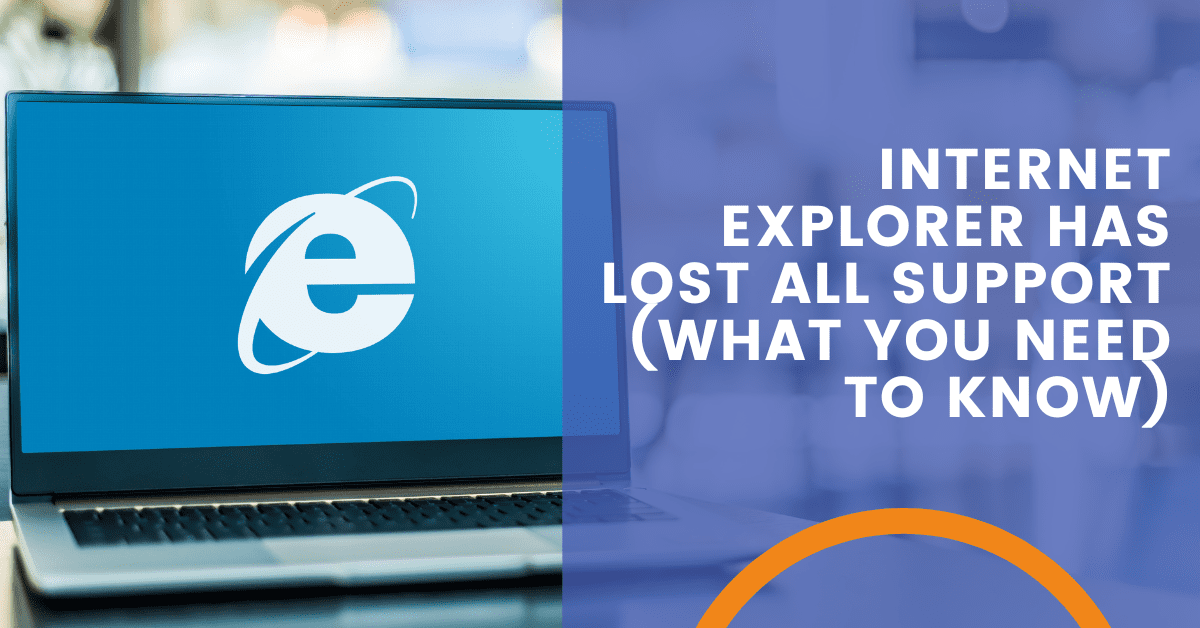
The Scoop on IT Mergers and Acquisitions
We’re going to talk a little bit about the latest news. And there’s a couple of things going on right now and it may or may not be of interest.
The first one is I need to get a haircut. So I don’t have anything in my hair, it looks really bad.
Hopefully I’ll get a haircut this week and I will go back to looking like a civilized human being.
But other than that, I am going to talk about the consolidation of the IT industry among vendors and companies like us, the managed service providers, and how that can impact your organization.
This is not going to be me like bashing on people, but it’s just kind of telling you what’s going on because it’s going to impact the consumers of IT services quite a bit.
So, the first thing we’re going to talk about is the managed service providers, like my company ArcLight, and how we’re being consolidated.
Private equity is coming in and they’re acquiring companies like ours left and right. I get three or four emails a week or more asking me if I want to sell, telling me they want to sell me a company. It’s always just a pretty constant stream.
Consolidation in the IT Industry
So the consolidation in our industry, it’s good and bad. The good thing is: if my business is successful and I have built a good blueprint, I can buy other businesses and continue to grow my business or acquisition, that seems really good. It can be bad in, if I’m not a good MSP and I don’t run a really tight ship and I just want to bring in as many companies as I can and bundle them up, and sell them to a larger company, HP, IBM, someone like that, then I’m really just going through the motions to make as much money as I can, line my own pockets, and then I don’t care who I hurt, and we see that as well.
So, there are some good IT companies that are acquiring other MSPs, rolling them into a good business model and there are some that are going out there and are acquiring a ton of MSPs and they’re just making one behemoth bad company that has a very powerful marketing engine. Tons of sales and marketing going on, they’re bringing in new customers to replace all those ones that are firing them regularly. There’s a lot of things going on in that and that’s true of almost every industry right now, they can be consolidated. There’s a huge consolidation going on between especially service industries today as well as even manufacturing.
So, one of the things that means is the opportunities: the companies that are out there that serve you, the MSP’s, are going to become more and more limited.
Regulations on IT are Coming
And another driver for that is the regulation that’s coming out. The Federal Government
can’t just stay out of things, they’re going to get their hands in and they’re going to start mandating, they’ve already started mandating, things for MSP’s and MSSP’s.
So MSP’s is a Managed Service Provider, people that provide you service and support, like us,
and then there’s Managed Security Service Provider and they are strictly security company.
Now anyone can call themselves an MSSP, I can say that today, but a true MSSP has a SOC, a Security Operations Center, like people that man it 24/7, 365, and companies like mine will outsource to some MSSP’s for SOC services if you need it. You probably don’t need it unless you’re a very large company that has a need for something at that level because it’s not cheap.
Alright so, with the government regulation coming down and private sector pushes such as insurance brokers: they lost money last year with ransomware incidents. Paying out, they lost a ton of money and about 50% of the brokers in the industry dropped out completely. That left only 50% of the insurance brokers. Well as we see the renewals coming through for our clients as well as our own, the requirements have gotten incredibly strict. They’re actually naming products we have to have. So, smaller providers, the ones that can be low cost or budget providers or even just boutique providers, we kind of consider ourselves a boutique provider, are going to be getting squeezed, and if they don’t have the deep pockets to adapt to the regulation to the insurance broker’s requirements and the lending institutions,they’re going to have the be acquired by other companies.
Which is even further going to reduce the amount of choice for companies that need IT support and services without having an in-house IT department. And having an in-house IT department, for the most part, is going to be a thing of the past in the next few years. It’s just not something that anyone’s going to do anymore. And there’s a lot of good reasons for that. Some of the good reasons are, if you’re a big company and you have an in-house IT department, what are they learning on?
They only know your systems, they don’t get to go out and work with different systems, learn new things and innovate. It makes it very hard for them to grow and mature within your organization. They get stagnant, they get bored, and they go work somewhere else. And that’s the way it works in our industry.
Alright, back to the consolidation.
We’re going to see a limited number of IT companies that are going to be available to serve customers. There’s going to be a strong delineation, I think, between the ones that are doing a really good job, and the ones that are just fly by night, break fix, trunk slammers, that are just charging whatever they need to be able to have a subsistence.
Define Your Business Needs
And the break fix companies are going to be serving your small mom and pop shops, they don’t care about security, they just go fix whatever’s broken and move on. Larger companies are going to be serving all of your big business. And by big business I’m talking about companies with about 30 or 40 employees or more, up to thousands of employees. A lot of these companies, to keep their cost down, are going to outsource their Help Desk to the Philippines, to India, to different places. That’s not necessarily a bad thing.
What you need to do is you need to understand your business model. You need to understand what is the demand of your business:
- Do you need to have someone available 24/7?
- Do you need to have someone who’s skilled and knowledgeable available?
- Or are you going to be okay with having someone that you put in a ticket, yes it will get resolved, but it might take 2-3 days.
That’s going to be the differentiator when you go and look at IT companies that you’re going to actually have to look at and say
“Look, I’m a hospital or I’m an accounting firm, and I cannot be down.”
“If I am down, I lose money.”
“If I’m losing money, I’m losing more than it costs to pay an IT company.”
You’re going to have to do that risk calculation yourself.
And we use two terms, RPO and RTO. Recovery Time Objective and Recovery Point Objective.
How much data can you afford to lose?
And how long can you afford to be down?
Those two terms are really how you define your business’s productivity and requirements for profitability. Because if you can afford to be down for a very long time and you can afford to lose a lot of data, you don’t need to spend a whole lot of money. Get yourself a trunk slammer, someone that comes out and fixes things every now and then. But if you can’t be down for more than an hour, say a month, you need to spend more money on your infrastructure, your support, and knowledgeable staff to take care of that. So you’re going to get less choice, there’s going to probably be mandatory products. I shouldn’t say probably, there will be mandatory products. We’re having to mandate products.
Again, that’s because we’re being pushed by insurance brokers, federal regulations, our liabilities going through the roof and our insurance costs are going through the roof. Just like yours are. So MSP’s are going to consolidate, that’s going to become more and more the case. The costs are going to go up or you’re going to have to decide that you don’t need good support and you’re going to go with a trunk slammer.
Make that decision wisely, make a calculation, make it a calculated move. If you decide that. There are companies that can afford to lose a lot of data, and can afford to be down a long time. They exist. We meet them every now and then and we tell them “Look we’re not the right fit.”
You need to decide if you really are that company. What does it really mean if you’re down. And you could lose the quality of service.
Change in Industry Landscape
There’s going to be a lot of companies that are bigger, that have consolidated, that are still not going to deliver good service, but they may charge a high price. And you’re going to be able to identify them pretty easily I believe. You’re going to see a lack of professionalism on both sides. The big companies that are acquiring people there’s not enough IT people out there. There’s a major IT shortage in staffing for IT companies. And the professionalism of IT people, honestly, it’s gone down.
They don’t have the same drive, ambition, desire to service and support people. And finding good people is very hard. These companies that are growing rapidly are having to take anyone that they can get. I speak as someone who is trying really hard to hire people that fit our culture and what we want to do for our clients and it is a very difficult task. So keep that in mind.
The next type of consolidation is vendors. Vendor consolidation has been going on for a couple of years now, and it’s also limiting the amount of services and solutions out in the marketplace.
The nice thing about IT is when vendors consolidate. So let’s say we’ve got anti-virus company A gets merged with anti-virus company B and they become one product.
Well, maybe that one product is not as good as that one other product that got merged in
but it replaced it and they just shut it down. Who knows what happened. But what ends up happening when those two companies merge is that you have a gap in the technology fields.
Now here’s the nice thing about that. They’ll just build more. That’s the nice thing about software. Anytime there’s software out there that’s really good, and people start to acquire software companies, someone else will pop up with a competing software, with some of their private equity backed investors that are actually pushing them.
So I don’t worry too much about the vendor acquisitions. However, if your IT company is just locked in to certain solutions and they will not deviate from those, they may find that their solutions are obsolete or not as good.
So you just need to make sure whatever the solutions are, that they are implemented for your organization. More than anything you need to trust your IT company or your in-house IT people. And if you do, just make sure they’re staying up to date with the latest technologies and changes because some companies acquire other companies and they drive them into the ground. And you do not want that.
Years ago, there was a company, they’re still around, called SonicWall, they make firewalls. They were one of the best and most cost effective firewalls on the market for many years.
They got acquired by a private equity company and immediately stopped doing great development. It kind of went downhill, then Dell bought them and it kind of continued to be a floundering product. And then another group ended up with them and now they’re starting to go back up. We hear a lot of good things about them again, they’re starting to take back off.
But you would not have wanted to be with them during that down term. If you had a major problem, getting it fixed was going to be a nightmare, you were going to be on a waiting list to get support, the support was not going to be knowledgeable.
And that goes back to your RPO, RTO. If you’re using vendors, hardware, software vendors,
anyone that is in that down turn, or was acquired by that company that is not managed well, which happens a lot then you have a problem. You’re not going to be able to get support.
You’re going to have that long recovery point objective, recovery time objective if you have a problem to get your infrastructure back operational again. So you need to stay on top of that.
So that is our industry today.
What Next?
Lots of merger acquisitions with IT companies, lots with our software vendors and a lot of those vendors came out of IT companies like us. They just said “Hey, there’s a need, we’re going to create a product and let’s get it out there.” None of this is necessarily bad. The consolidation of the MSP’s is really hit and miss. There’s some good things and bad things like I said before. I worry that we’re going to end up with just a couple of really big players that are undercutting everyone else on cost and that the quality of service just goes down. We all will just have to live with long amounts of down time between issues and problems that we’ll just have to deal with. And that’s what we’re going to end up with. But, in a free market society, someone will come with something else. It’ll change that industry, it’ll get dispersed again and then a few years later it will consolidate again. It’s like the circle of life right?
So, that’s all I’ve got for today. If you have any questions or concerns or want to learn more about this, feel free to reach out to me. My name is Brian Largent, I’m with the ArcLight Group. Have a great rest of your week.
Share the Knowledge
Managed Service Provider CHECKLIST
Land on the best IT solutions partner for your needs with this easy-to-follow, one-page download.










